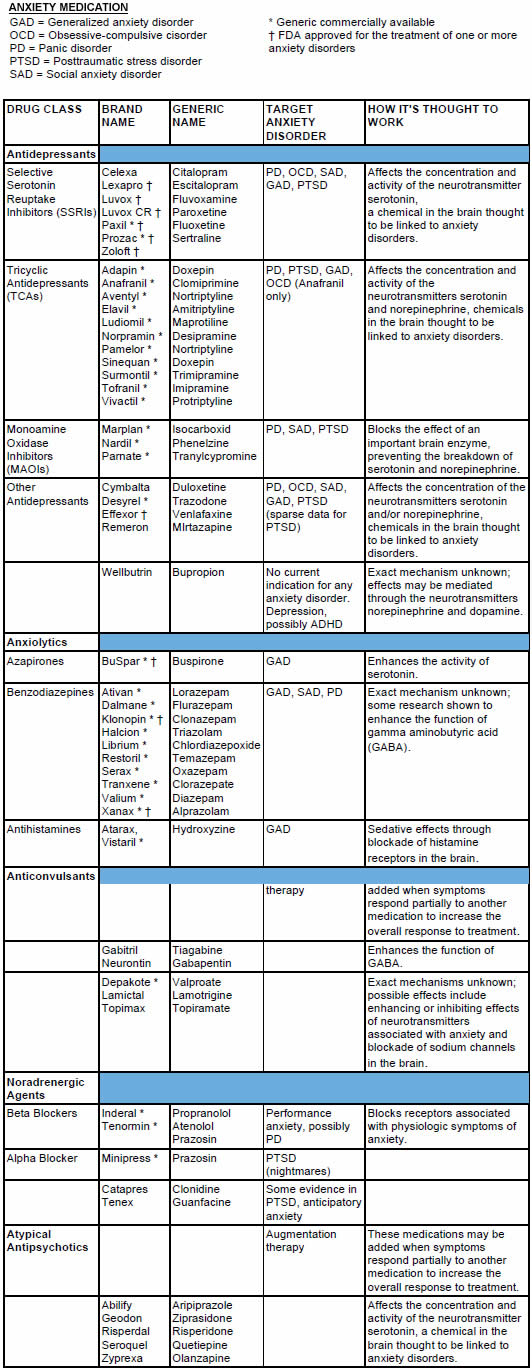
This is because they can have serious side effects.

MAOIs - such as tranylcypromine (Parnate), phenelzine (Nardil) and isocarboxazid (Marplan) - may be prescribed, often when other medicines haven't worked. So tricyclic antidepressants generally aren't prescribed unless you've tried other antidepressants first without improvement. Tricyclic antidepressants - such as imipramine, nortriptyline (Pamelor), amitriptyline, doxepin and desipramine (Norpramin) - tend to cause more side effects than newer antidepressants. Bupropion is one of the few antidepressants not frequently associated with sexual side effects. More-commonly prescribed antidepressants in this category include trazodone, mirtazapine (Remeron), vortioxetine (Trintellix), vilazodone (Viibryd) and bupropion (Forfivo XL, Wellbutrin SR, others). These antidepressants are called atypical because they don't fit neatly into any of the other antidepressant categories. Examples of SNRIs include duloxetine (Cymbalta, Drizalma Sprinkle), venlafaxine (Effexor XR), desvenlafaxine (Pristiq) and levomilnacipran (Fetzima).

Serotonin and norepinephrine reuptake inhibitors (SNRIs).SSRIs include fluoxetine (Prozac), paroxetine (Paxil, Pexeva), sertraline (Zoloft), citalopram (Celexa) and escitalopram (Lexapro). These antidepressants generally cause fewer bothersome side effects and are less likely to cause problems at higher therapeutic doses than other types of antidepressants. Health care providers often start by prescribing an SSRI. Selective serotonin reuptake inhibitors (SSRIs).Many types of antidepressants are available to treat depression, including: Also find out whether your health insurance covers antidepressants and if there are any limitations on which ones are covered. Some antidepressants can be expensive, so ask if there's a generic version available and discuss its effectiveness. Other examples include using duloxetine (Cymbalta, Drizalma Sprinkle) to help with pain symptoms or fibromyalgia, or using amitriptyline to prevent migraines. For example, many antidepressants may relieve symptoms of anxiety disorders. On the other hand, certain antidepressants may help treat other physical or mental health conditions along with depression. Some antidepressants may cause problems if you have certain mental or physical health conditions. Work with your health care provider to find the best way to manage your depression when you're expecting or planning on becoming pregnant.

Still, certain antidepressants, such as paroxetine (Paxil, Pexeva), are discouraged during pregnancy. Overall, the risk of birth defects and other problems for babies of people who take antidepressants during pregnancy is low. A decision to use antidepressants during pregnancy and breastfeeding is based on the balance between risks and benefits. Some antidepressants can cause dangerous reactions when taken with other medicines. Also, if an antidepressant has been effective for your depression in the past, it may work well again. How a medicine worked for a blood relative, such as a parent or sibling, can indicate how well it might work for you.

When choosing an antidepressant that's likely to work well for you, your health care provider may consider: There are many types of antidepressants available that work in slightly different ways and have different side effects.


 0 kommentar(er)
0 kommentar(er)
